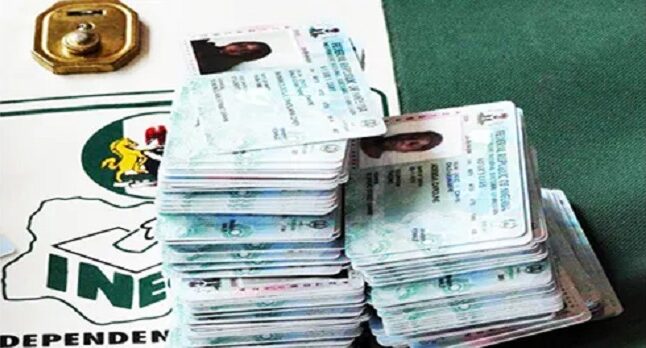Reps shoot down bill to review criteria for voters’ card transfer
A bill seeking to amend the Electoral Act 2022 to review the criteria for voters seeking to transfer their cards from one location to another suffered a setback at the House of Representatives on Thursday. Leading the debate on the second reading of the bill, the sponsor, Rep. James Abiodun Faleke (APC, Lagos), stated that […]

Permanent Voters Card
A bill seeking to amend the Electoral Act 2022 to review the criteria for voters seeking to transfer their cards from one location to another suffered a setback at the House of Representatives on Thursday.
Leading the debate on the second reading of the bill, the sponsor, Rep. James Abiodun Faleke (APC, Lagos), stated that the bill seeks to amend Section 13 of the Electoral Act 2022 to require an applicant seeking to transfer their voter registration data to prove their residency in the new location.
He explained that the proposed amendment mandates an applicant to provide evidence of utility bill payment bearing their name in the new location, a driver’s license, and a recommendation letter from a community leader in the new location confirming the residency of the applicant.
However, the second reading of the bill faced opposition from several lawmakers, who argued that the proposed amendment would disenfranchise many Nigerians from exercising their voting rights.
- FG’s capital expenditure declined during oil price boom – Report
- Qatar and Morocco to host U-17 World Cups for next five years
Rep. Kelechi Nwogu, opposing the bill, pointed out that utility bills often bear the names of landlords and not tenants, suggesting that using utility bills as criteria for transferring registration data could disenfranchise Nigerians. He also raised concerns about the condition of obtaining confirmation letters from community leaders or district heads, stating that such requirements could be politicized to deprive people of the opportunity to transfer their cards to locations they desire.
Deputy Speaker Benjamin Okezie Kalu, also opposing the bill, argued that it would disenfranchise Nigerians and restrict political participation. He advised that the bill be set aside for further legislative action.
In support of the bill, Sada Soli described it as revolutionary, dynamic, and futuristic.
After heated debates, the bill’s sponsor, Rep. Faleke, requested that the bill be set aside for further legislative action.
